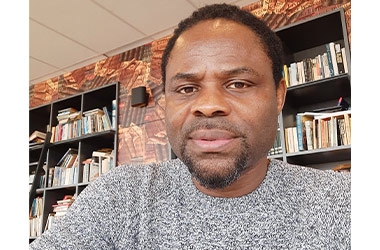Student Analyses Circular Economy Initiatives Developed in Nigeria
Student Analyses Circular Economy Initiatives Developed in Nigeria
Student Analyses Circular Economy Initiatives Developed in Nigeria
https://www.wittenborg.eu/student-analyses-circular-economy-initiatives-developed-nigeria.htm
Mendie Mbaba’s Thesis Focused on Private and Public Actors
Concerned about the increasing number of environmental disasters, as well as the barriers faced by businesses when adopting sustainable practices, Wittenborg graduate Mendie Mbaba decided to write his MBA thesis on circular economy initiatives developed in Nigeria.
Mbaba, who recently completed a degree in International Management, stresses that more research needs to be conducted on sustainability in developing countries, as it can result in innovation in areas such as waste processing and the reuse of items. To collect the data for his study, he made use of a qualitative approach, relying on methods such as questionnaires and interviews done with Nigerian companies’ stakeholders. Later, he conducted content analysis on the data he had obtained.
Mbaba’s study finds that in Nigeria circular economy is practised on an informal basis, since the country has not yet implemented adequate structures to support companies that are active in this sector. “The absence of appropriate legislation, coupled with insufficient policy implementation and the government's failure to improve essential infrastructure, prevents companies from taking advantage of the many opportunities available in the country,” the student points out.
However, he highlights that individuals and companies are becoming increasingly informed about circularity, and several initiatives towards the realisation of a circular economy have been developed in the Nigerian capital, Lagos. “The Green Lagos initiative is an important development, as well as the multiple actors – including NGOs, advocates for circular economy and universities – who have been working together to raise public awareness about waste management. Moreover, the Nigerian-Dutch cooperation to recycle plastic waste is also of great importance, because in addition to promoting technology transfer and human capacity development, it will facilitate equipment and machinery transfers to waste collection companies in Nigeria.”
The thesis also argues that one important milestone achieved so far has been the empowerment of designated government agencies to regulate the activities of manufacturing companies in the country. “The Federal Environmental Protection Agency (FEPA) of Nigeria and its affiliate agencies compel companies to take responsibility for the waste their products generate. This makes it possible to dispose of waste without causing environmental consequences,” says Mbaba.
Apart from sustainability and circular economy, Mbaba is also interested in the intersection between technology and business. “Now that I have finished my studies in International Management, my priority is to pursue another degree, possibly in data analytics or artificial intelligence,” he points out.
WUP 8/5/2022
by Ulisses Sawczuk
©WUAS Press
438 words